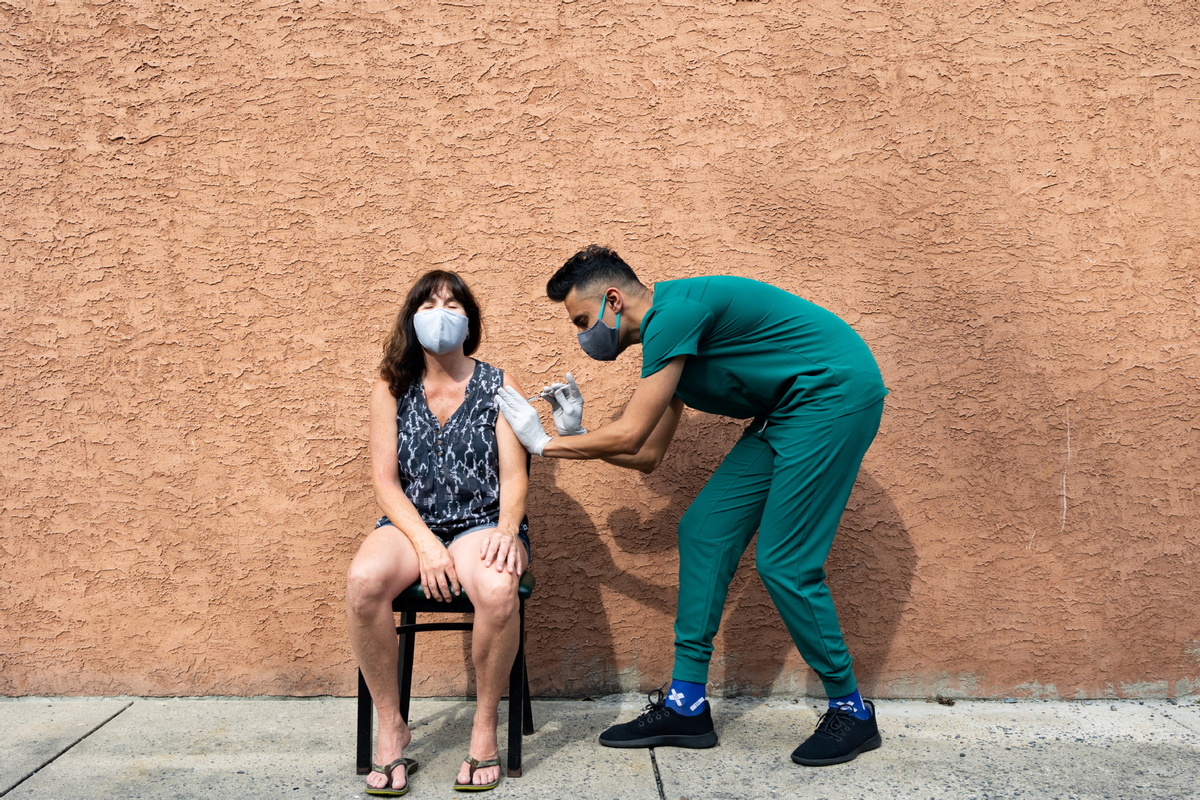US pushes on with COVID-19 vaccination plan as booster shot approved


NEW YORK - The US government keeps pushing through its vaccination plan with a booster shot finally approved this week, and financial support has been provided to toughen up some school districts that suffer from salary losses for defying local ban on mask mandates.
According to The New York Times, the 7-day average of confirmed cases of the pandemic stood at 123,074 nationwide on Friday, with its 16-day change striking a 12-percent fall. COVID-19-related deaths were 2,062 on Friday, with the 14-day change realizing a 26-percent rise.
Vaccine matters most
The United States could be facing another "dark winter," though this can be avoided if Americans get vaccinated to a "very high degree" in the coming months, the nation's top infectious disease expert Anthony Fauci told CBS earlier this week.
"You know, if we don't get people vaccinated who need to be vaccinated, and we get that conflating with an influenza season, we could have a dark, bad winter," said Fauci, the chief medical advisor to US President Joe Biden.
In late 2020, Biden warned that the country was headed for a "very dark winter" because of the rising COVID-19 cases. Currently, the Delta variant is driving the daily average national fatality past the 2,000 point again and some 70 million Americans still refuse a COVID-19 vaccine.
On Friday, the Centers for Disease Control and Prevention (CDC) approved a booster shot of Pfizer's COVID-19 vaccine to an expanded group of Americans. Three-quarters of eligible Americans have received at least one dose of a COVID-19 vaccine and some are now able to receive an additional booster shot.
Starting Friday, if people from one of the three high-risk groups are six months from their last doses of the Pfizer vaccine, they will be eligible for a booster shot. The first group includes those aged 65 or older.
"Number two: You have a medical condition that puts you at high risk of severe illness with COVID-19 and these conditions include obesity, diabetes, high blood pressure, chronic kidney disease and others. And Number three: You work or live in a setting where you are at high risk of exposure to COVID-19. This includes health care workers, teachers, those living in shelters or prisons and grocery store workers," said US Surgeon General Vivek Murthy during a briefing.
Support for school mandates
As school mask mandates have generated controversy in many parts of the country, two studies published on Friday by CDC have provided additional evidence that masks protect children from the coronavirus.
One study, conducted in Arizona, where children returned to school in July, found that schools that did not require staff and students to wear masks were 3.5 times as likely to have a virus outbreak as schools that required universal masking.
A second study looked at infections among all children in 520 different counties across the United States, and found that once the public school year started, pediatric cases increased at a far higher rate in counties where schools did not require masks.
Meanwhile, the US Education Department has set up the Project to Support America's Families and Educators (Project SAFE) grant program, to provide funds to school districts that are being punished by state entities for implementing COVID-19 safety measures including mask mandates and social distancing.
So far, only one school district, the Alachua County Public Schools in Florida, has received funds from the program (nearly 150,000 US dollars), but applications are open to any districts that implement strategies to prevent the spread of the coronavirus and have incurred a financial penalty because of it.
Florida governor Ron DeSantis, among some other Republican counterparts, has banned mask mandates in schools. Last month, he threatened to withhold the salaries of any school board members whose districts disobeyed his order and required students and staff to mask up.































